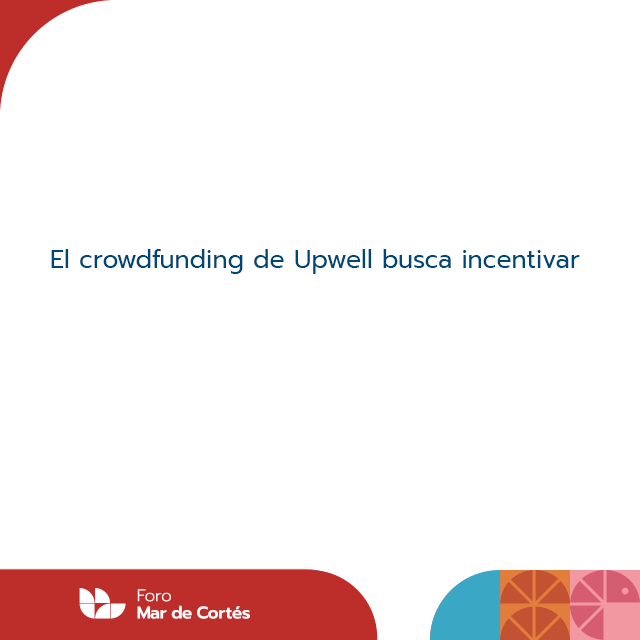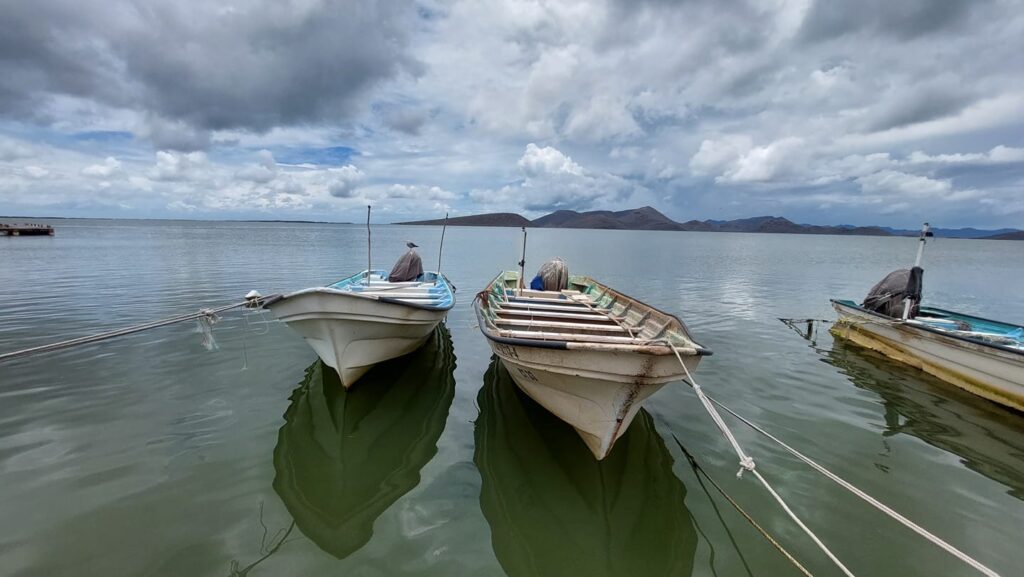The waters of the Sea of Cortés are rich in the production of commercial marine species, however, bycatch is a problem that puts many species at risk, including the most threatened species. sea turtlesthat is why Stephanie Rousso has initiated a project with which it is already working with fishermen of Sinaloa and whose objective is to exercise this activity in a responsible manner.
Rousso is a researcher originally from the United States, but she is currently working on her Ph. Interdisciplinary Center for Marine Sciences of the Institute National Polytechnic (Cicimar-IPN La Paz). She is also the coordinator of Upwell in the northwestern region of Mexico, a non-profit organization that works for the protection and conservation of sea turtles.
Support for turtle bycatch monitoring
He explains that Upwell created a crowdfunding fund to support artisanal fishermen in northern Sinaloa with whom it has partnered in the development of a scalable methodology for reporting sea turtle bycatch data and subsequent release.
"This project, this fundraising, is specifically for the fishermen of Sinaloa, with whom we have been collaborating for the last four or five years. We want to generate funds to pay the fishermen for their efforts in sea turtle conservation. This fund is to pay the fishermen for their environmental service," he says.
Stephanie Rousso adds that the fishermen she is working with on this project are from La Reforma, Angostura; Cerro Cabezón, Guasave; and Lázaro Cárdenas, Ahome.
"These fishermen have been working for 15 to 20 years with the Grupo Tortuguero de las Californias, they are trained to take the turtles out of the water, they know how to weigh, measure, tag with a mark and then release," he says.
In addition, they are promoters of turtle conservation because they recruit other fishermen to report bycatch, which is not a requirement in Mexico, he stresses.
Incentive for responsible fishermen
Rousso adds that another part of this project is to encourage fishermen who catch their products responsibly, using sustainable fishing gear such as the suripera, which reduces bycatch of other species.
"This project is also to promote, educate, and spread the word to people who eat seafood that some types of fishing gear are more sustainable than others and it is our job as consumers to seek out and choose fishermen who are fishing responsibly and choose seafood that is caught that way," he expresses.
To this end, they are developing a niche market of consumers who will be able to buy directly from these fishermen and their products will carry a QR code that when scanned will reveal information on who, when, where and how it was caught.
"It's a way we can spread the word to people about the importance of promoting and supporting responsible fishermen, because the government is not involved, they give a lot of money in Sinaloa and all over the country to fishermen to buy better quality engines, to make faster boats, which is fine in terms of economics, but they are not considering sustainability," he comments.
The Mexican government should reward fishermen who are protecting marine life in general, he believes.

The U.S. researcher explains that they are already buying products from responsible fishermen in Sinaloa and selling them in La Paz to people who are aware of this type of purchase, but they do not yet have the QR code because they need funds.
"Through my thesis with this project I am interviewing consumers to get a better idea of how much we can sell these products above the normal market, because the idea is to generate money and that goes back to the community to buy what they need: equipment, gasoline, pay for a scholarship, whatever, the idea is to generate a huge tray full of money by selling these products at a premium price," he says.
He stresses that Upwell created crowdfunding to generate money and pay fishermen on the bycatch log, but with the niche market for eco-labeled products they want to generate long-term funding.
Stephanie Rousso explains that most people buy shrimp caught in trawl nets that catch and kill many other species, so if someone wants to contribute to the protection of the ecosystem of the Sea of Cortés and its coastal lagoons, they should look for shrimp caught with suripera.
Due to its design and the time it remains in the water during each cast, this is a responsible and sustainable fishing gear, which is also part of Mexico's heritage, although many people do not know about it.


